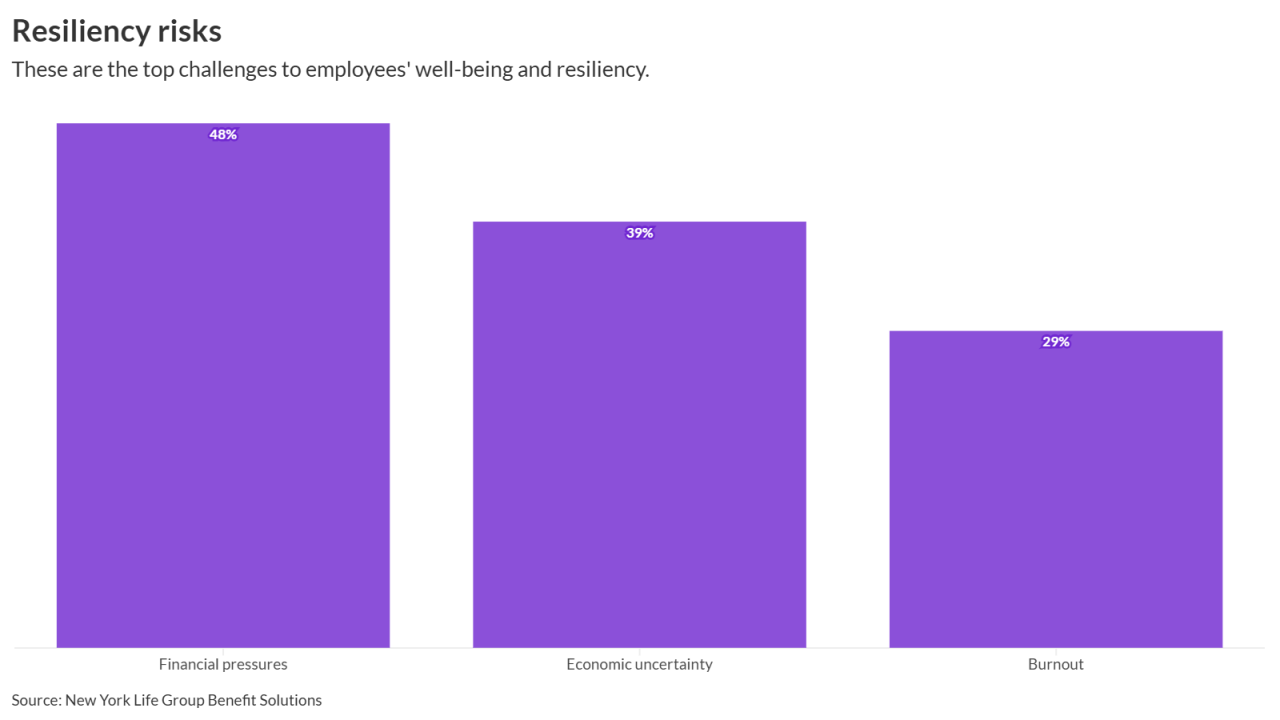For all working parents, the balance between fulfilling job responsibilities and the needs of their children can be precarious. For those helping their child navigate the complexities of a
An estimated 49.5% of adolescents have had a mental health disorder at some point in their lives, according to the Department of Health and Human Services. The most common adolescent disorders include anxiety, depression, attention deficit/hyperactivity disorder and eating disorders. The time parents must spend on care and support can be overwhelming, says Jill Cassone, the founder of private academy Success4School and an educational diagnostician with a background in regular and special education, as well as specialized ADHD training.
Read more:
"When you have a child who has mental health needs such as anxiety, OCD, ADHD and the like, everything becomes next-level," she says. "[For parents], oftentimes the world can feel lonely and overwhelming."
Employee wellness, attendance at work, and job productivity all suffer as a result of the strain. According to a survey conducted by children's mental health organization On Our Sleeves, almost one in three working parents expressed higher levels of concern and work disruption related to their children's mental health following the COVID pandemic, and one third has reported changing or quitting their jobs because of their child's mental health. Cassone points out that employers need to recognize that although many parents may experience having a child with a mental health condition, each of their employees will have different needs when it comes to support.
"Unfortunately, words like 'ADD' and 'anxiety' are so overused, society makes it easy for people to normalize these terms as 'everyone has a little of that,'" she says. "Therefore, it is difficult to meet the real needs when so much of mental health recedes into the noise."
Read more:
The path to restore health can be a long one, and managing a child's mental health can feel like an uphill battle as parents seek to find the right care and end up facing questions, time constraints and high costs as they attempt to navigate the complex mental healthcare system.
"It is deeply important for employers to consider benefits that have the greatest impact, and for those with children with mental health needs, the struggle is real," says Cassone. "Employees give to their jobs and then they give all they have to their family."
With some creativity, employers can support employees through compassionate work environments, supportive benefits and caring leadership. Here are five ways to make a difference:






